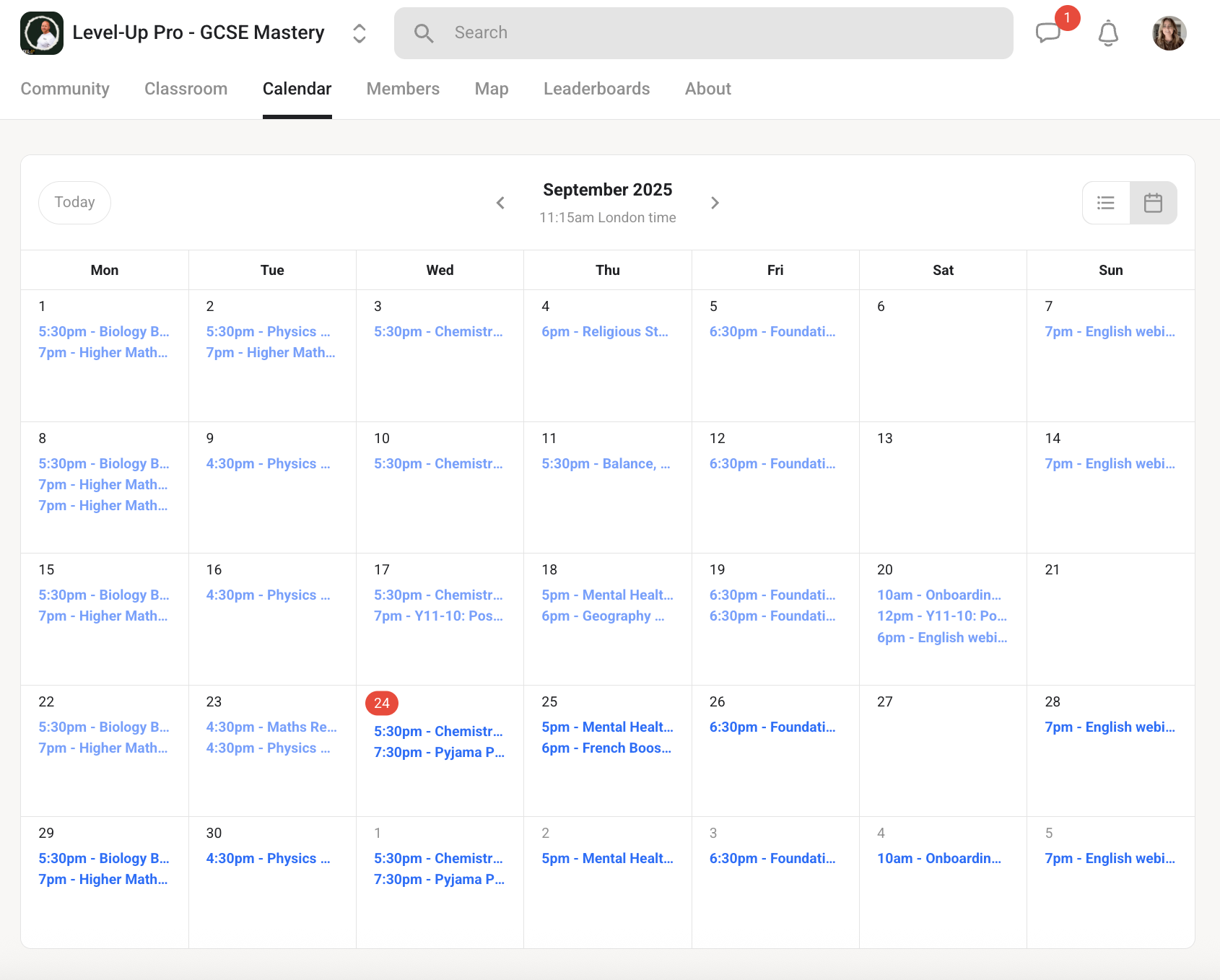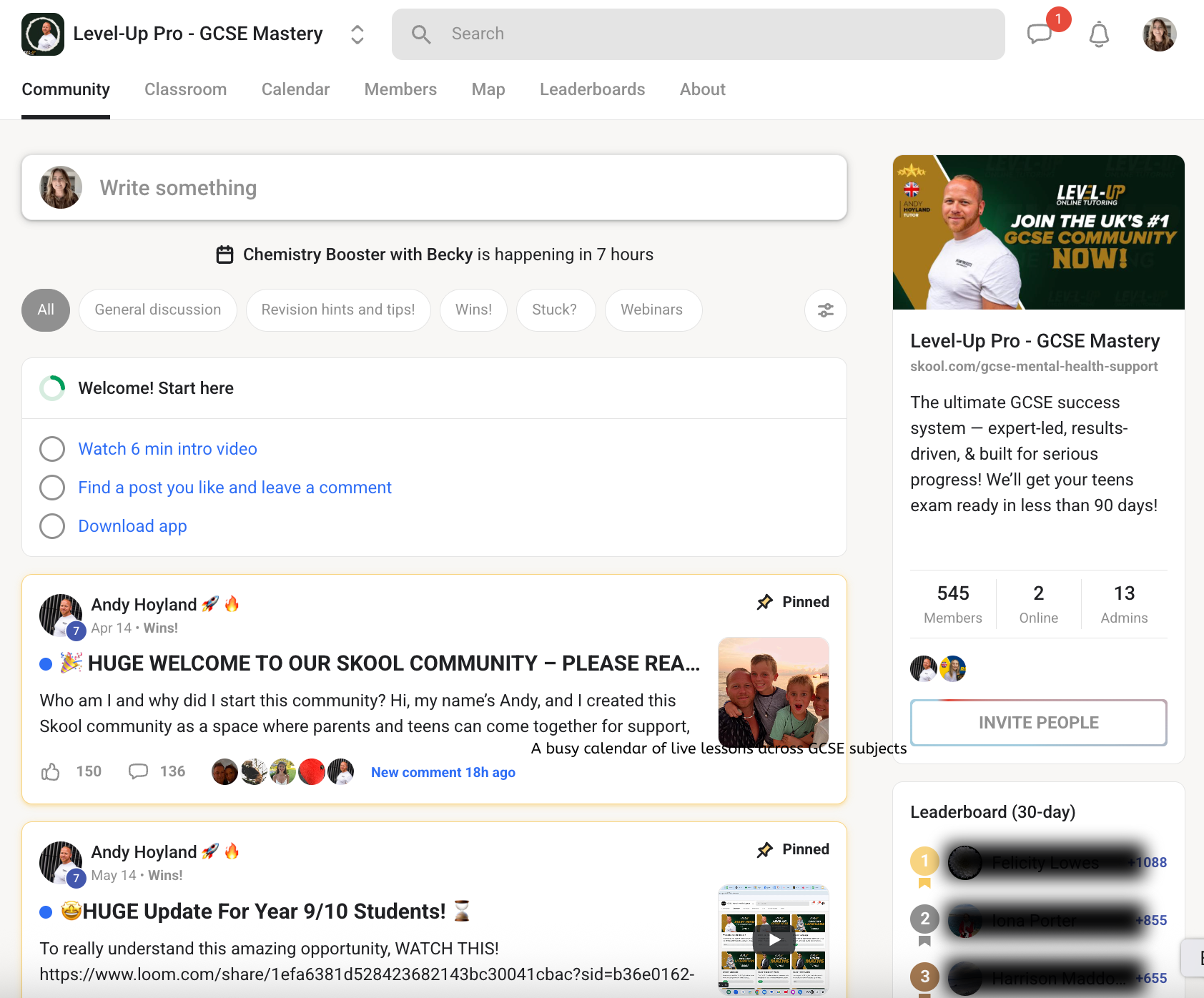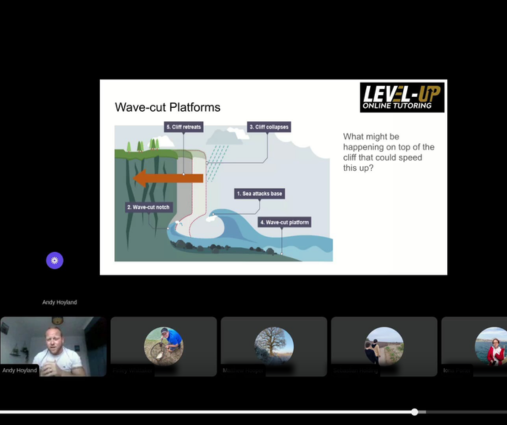When Should Your Teen Start GCSE Revision? A Parent’s Timeline for Success
Parents often ask: “When should we start GCSE revision?” Start too late and stress goes through the roof. Start too early and motivation fizzles out. The sweet spot is a steady build — small, consistent habits that grow as exams get closer.
Here’s a practical, parent-friendly timeline — plus how Level-Up helps your teen stay focused, confident and supported at every step.
Year 10: Build Light Habits (Little and Often)
- Hours: ~1 hour per weekday, light or off on weekends.
- Focus: Core topics from class, short quizzes, flashcards, fixing knowledge gaps early.
- Goal: Make revision normal — not a panic response.
Tip: Start a simple weekly rhythm (e.g., Mon Maths, Tue English, Wed Science). Keep sessions short and active.

Year 11 (Autumn Term): Consolidate & Plan
- Hours: 1.5–2 hours per weekday by half term.
- Focus: Topic checklists, past papers (Section A/B), feedback loops.
- Goal: Know your strengths/weaknesses early — adjust the plan.
Parent nudge: Celebrate consistency, not perfection. Missed a day? Reset and carry on — no guilt spiral.
Mocks Season: Treat as a Practice Run
- Before mocks: Prioritise weakest topics; practise timing.
- After mocks: Analyse question-level feedback; target the exact skills that cost marks.
- Goal: Turn mock mistakes into a roadmap for spring.
Spring Term: Increase Intensity (Without Burnout)
- Hours: 2 hours per weekday; a little extra on weekends.
- Focus: Exam technique, timed questions, interleaving subjects.
- Goal: Build exam stamina (short timed tasks > long marathons).

Easter to Exams: Tighten the Focus
- Hours: 2–3 hours total per day (short, focused blocks).
- Focus: Past papers, examiner reports, formulae/quotes, high-yield topics.
- Goal: Confidence and calm — no all-nighters, no cramming.
Common Pitfalls (and Easy Fixes)
- All notes, no practice: Switch to questions with mark schemes.
- Huge sessions: Use 25–40 minute blocks with 5–10 minute breaks.
- Ignoring weak spots: Do one “hard thing” first each session.
- Working alone for too long: Get help fast to avoid spinning wheels.
Why Level-Up Helps Students Revise Smarter (Not Longer)
- Weekly structure: Live lessons across major GCSE subjects — all recorded for rewatching.
- Ask-anytime support: Teachers reply inside the community so your teen never stalls.
- Well-being & study skills: Sessions that keep motivation steady.
- Rewards & accountability: Points, badges and recognition for consistent effort.
Families choose Level-Up because it turns “start revision” into a realistic, supported routine — months before panic season.

So, When Should Your Teen Start?
Year 10 is ideal for light, consistent habits. Year 11 ramps gradually, with mocks as checkpoints, and a focused push from Easter. With the right support, revision becomes manageable — and effective.
Ready to get a plan in place? Read our 5-star reviews, see how the programme works, or join directly via Skool below.
✅ Start strong, stay steady — with Level-Up
Related reading: How much GCSE revision per day?
Also helpful: Which online tutoring is best?


